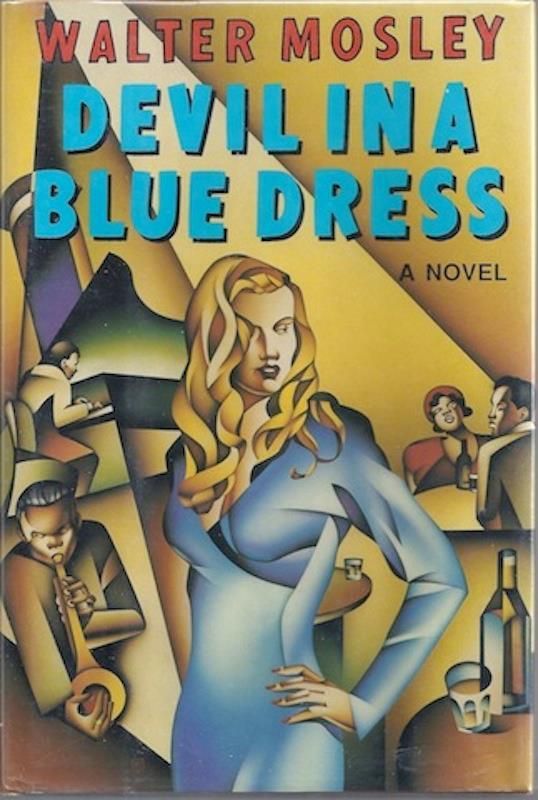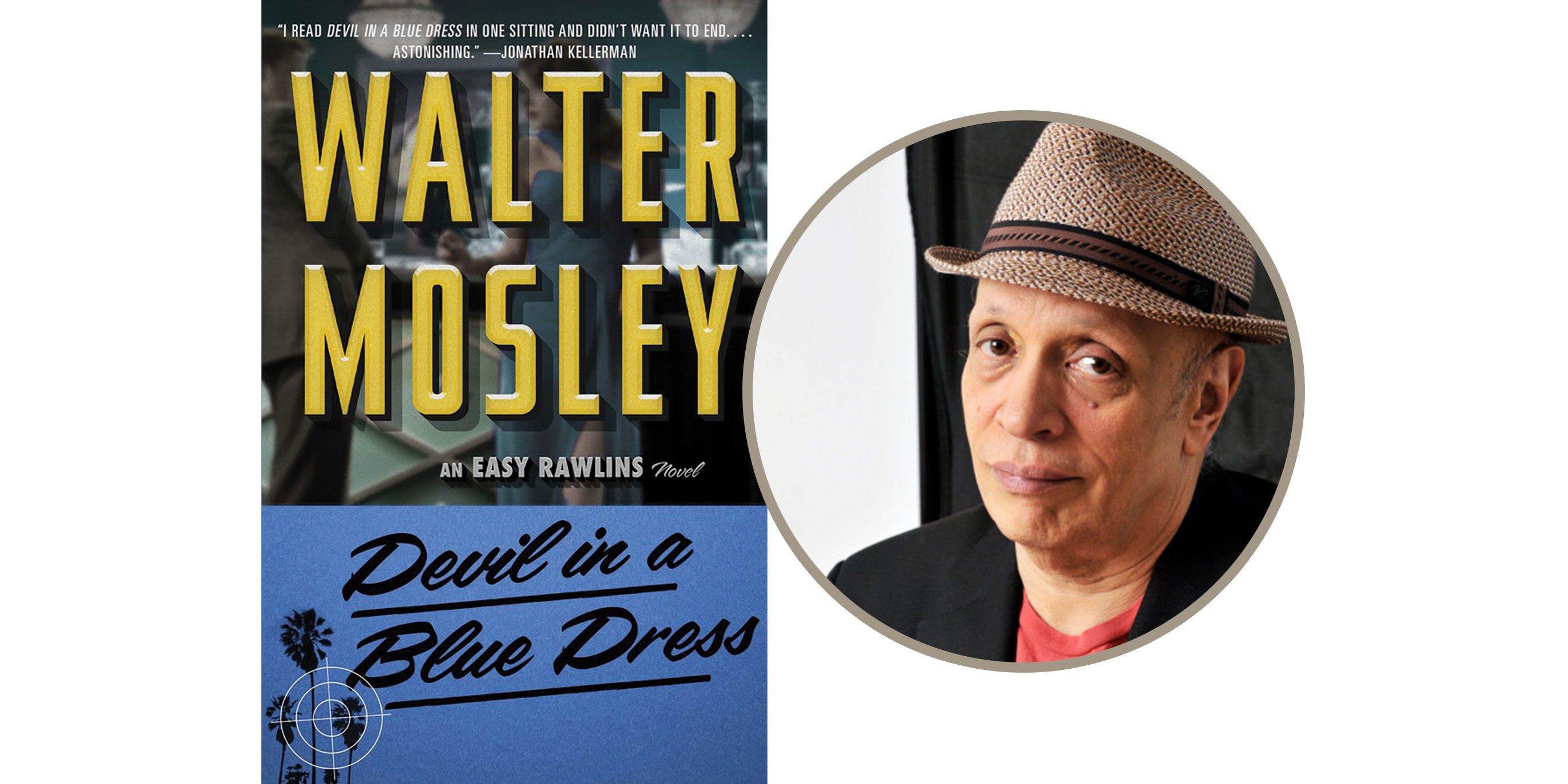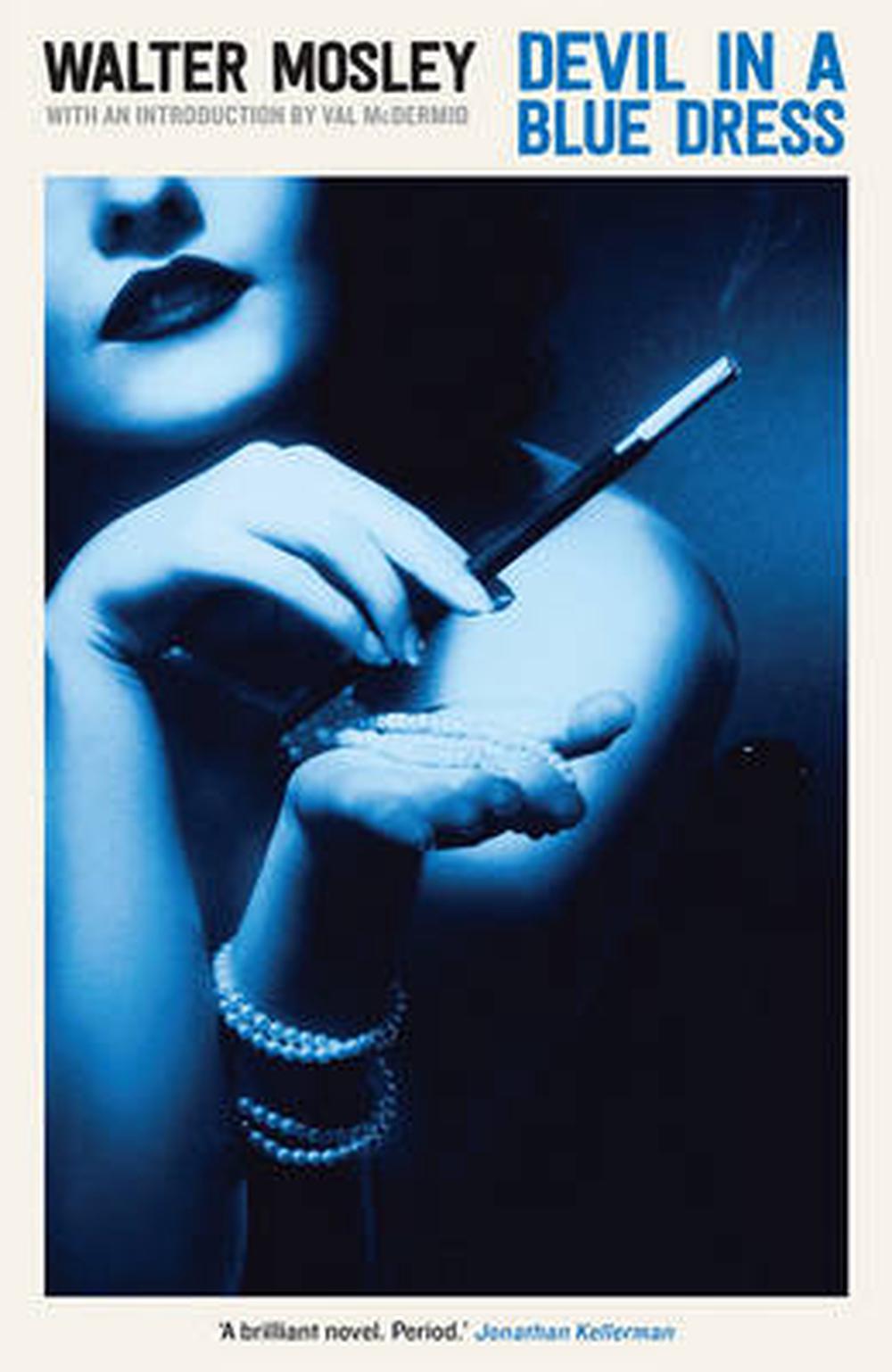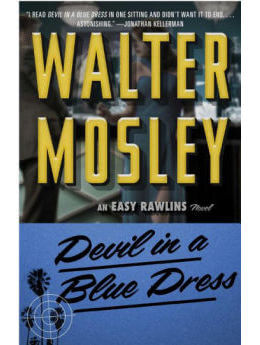

Joppy guffawed at the joke I smiled politely. That was back before the war, before every farmer, and his brother’s wife, wanted to come to L.A.” You know he prob’ly my oldest friend from L.A. “Yeah, Easy,” Joppy went on, bowing and grinning. His grip was strong but slithery, like a snake coiling around my hand. “You can call me DeWitt, Easy,” the white man said. I put a dollar down on the bar and made to leave, but before I was off the stool Joppy turned my way and waved me toward them. Joppy was a tough ex-heavyweight who was comfortable brawling in the ring or in the street, but he ducked his head and smiled at that white man just like a salesman whose luck had gone bad. The second thing that surprised me was that he made Joppy nervous. They shook hands and exchanged greetings like old friends. The white man smiled at me, then he walked to the bar where Joppy was running a filthy rag over the marble top.

I ate with them and slept with them, and I killed enough blue-eyed young men to know that they were just as afraid to die as I was. I had spent five years with white men, and women, from Africa to Italy, through Paris, and into the Fatherland itself.

When he looked at me I felt a thrill of fear, but that went away quickly because I was used to white people by 1948. He stopped in the doorway, filling it with his large frame, and surveyed the room with pale eyes not a color I’d ever seen in a man’s eyes. One lick of strawberry-blond hair escaped the band of his hat. His skin was smooth and pale with just a few freckles. It’s not just that he was white but he wore an off-white linen suit and shirt with a Panama straw hat and bone shoes over flashing white silk socks. I WAS SURPRISED TO SEE A WHITE MAN walk into Joppy’s bar.

“More than simply a detective novel… a talented author with something vital to say about the distance between the black and white worlds, and with a dramatic way to say it” ( The New York Times). Drinking in his friend’s bar, he’s wondering how he’ll manage to make ends meet, when a white man in a linen suit approaches him and offers him good money if Easy will simply locate Miss Daphne Money, a missing blonde beauty known to frequent black jazz clubs.Įasy has no idea that by taking this job, his life is about to change forever. The year is 1948, the town is Los Angeles.Įasy Rawlins, a black war veteran, has just been fired from his job at a defense factory plant. Named one of the “best 100 mystery novels of all time” by the Mystery Writers of America, this special thirtieth anniversary edition features an all new introduction from the author. The first novel by “master of mystery” ( The New York Times) Walter Mosley, featuring Easy Rawlins, the most iconic African American detective in all of fiction.


 0 kommentar(er)
0 kommentar(er)
